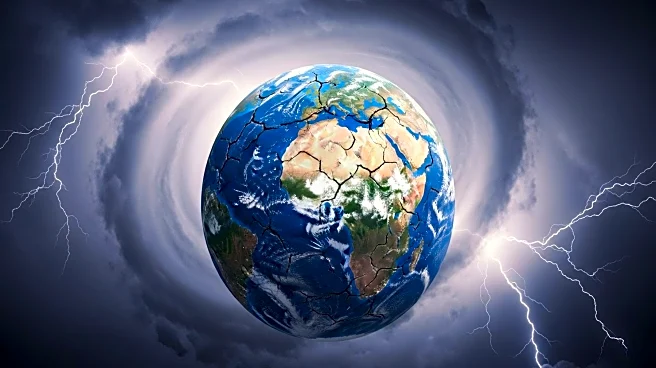What is the story about?
What's Happening?
News Corp's Daily Telegraph has come under scrutiny for its portrayal of Australia's National Climate Risk Assessment as 'science fiction.' The assessment, which outlines the risks of climate change on Australian lives and the economy, was dismissed by the publication based on the views of a US-based political scientist known for downplaying climate change impacts. The report highlights the potential consequences of global warming, including increased temperatures and coal usage, which were criticized as exaggerated by the Daily Telegraph. Experts have defended the assessment, emphasizing its scientific basis and the importance of addressing climate risks.
Why It's Important?
The portrayal of climate change as 'science fiction' by a major media outlet raises concerns about misinformation and its impact on public perception. Accurate reporting on climate risks is essential for informed decision-making and policy development. The dismissal of scientific assessments undermines efforts to address climate change and can hinder progress towards sustainability goals. This incident highlights the need for responsible journalism and the role of media in shaping public understanding of critical issues. It also underscores the importance of scientific literacy and the dissemination of evidence-based information to combat climate skepticism.
Beyond the Headlines
The incident reflects broader challenges in communicating climate science to the public. It underscores the tension between scientific consensus and media narratives, which can influence public opinion and policy. The situation calls for increased collaboration between scientists, policymakers, and media professionals to ensure accurate and effective communication of climate risks. By fostering a better understanding of climate science, stakeholders can work towards meaningful action and solutions to mitigate the impacts of climate change.
















